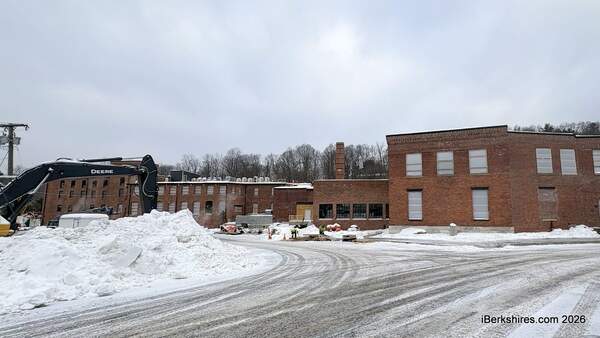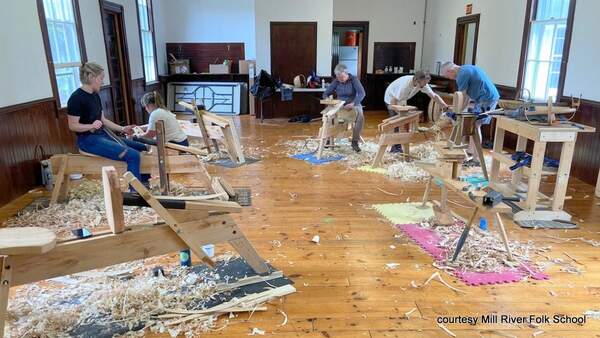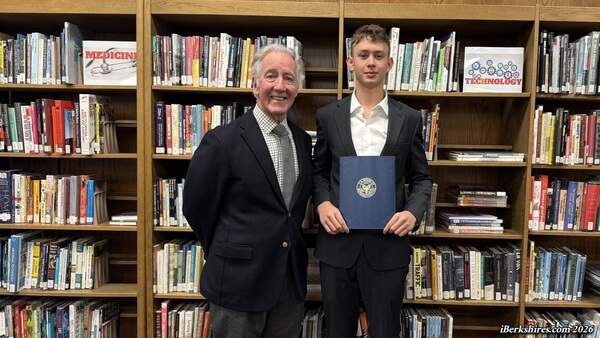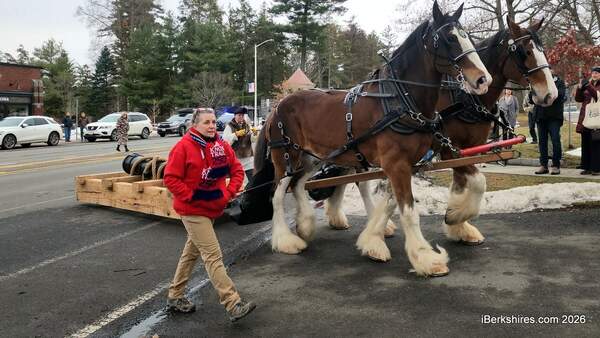BOSTON – Great Barrington and Sheffield both received grant funding through the Department of Fish and Game's (DFG) Division of Fisheries and Wildlife (MassWildlife)
The Baker-Polito Administration announced $216,078 in grants through the Climate Change Resilience Grant Opportunity Program to five conservation organizations and municipalities.
"The Commonwealth's investments in improving wildlife habitat will assist in the restoration of regional biodiversity throughout the state," said Governor Charlie Baker. "Through the Climate Change Habitat Resilience Grant Opportunity Program, the positive management actions being taken are natural solutions that will result in a more diverse, resilient landscape of wildlife, plants and other natural environments."
In Great Barrington, the Berkshire Natural Resources Council will receive $37,495 to improve floodplain forests by removing invasives along the Housatonic River and Rising Pond, sites within Environmental Justice Communities.
As one of the few major rivers designated as a coldwater fishery resource (CFR), removing invasive trees, plants and shrubs will enhance floodplain growth conditions of large-canopy trees in the Housatonic River. The trees create shaded microclimates (pockets) of cool water benefiting the longnose sucker, a state-listed fish and CFR species. Additionally, when large dead trees fall into the riverbed, it will provide valuable sheltering structure for young fish.
In Sheffield, the Trustees have been awarded $28,512 to improve habitat on Bartholomew's Cobble's Ashley Pasture by removing invasive plant and woody species such as multi-flora rose, mugwort, Asian bush honeysuckle and oriental bittersweet. The restoration goal is to benefit birds such as bobolink and American kestrel, and a state-listed plant, while increasing the ecological resiliency of the Pasture's grassland habitat.
"Improving climate change resiliency for the Commonwealth's natural resources is a key priority of our Administration, and communities, private landowners, and the general public will greatly benefit from the Climate Change Habitat Resilience Grant funds," said Lieutenant Governor Karyn Polito. "This program offers a wonderful opportunity to address conservation needs in both rural and more densely populated areas throughout the state."
In its first year, the Climate Change Resilience Grant Opportunity Program seeks to provide financial assistance to private and municipal landowners of conserved lands to enhance climate-vulnerable wildlife habitats and make them more resilient to climate change by funding habitat improvement projects in ecological communities disproportionally susceptible to climate change, including, but not necessarily limited to:
Fire adapted natural communities; and, Riparian communities and floodplains along cold water streams and other climate-vulnerable wetland/aquatic systems (e.g. coastal marshes).
"Habitat management restores ecological integrity through removal of stressors that limit our wildlife and natural communities' ability to respond to changing environmental conditions," said Energy and Environmental Affairs Secretary Kathleen Theoharides. "Conservation science has repeatedly demonstrated that continuous active habitat management activities for common and rare wildlife and plants are necessary to achieve ecological resiliency and diversity."
The program seeks proposed habitat management activities that reduce stressors adversely affecting proposed project sites, thereby enhancing climate resilience. For example, projects in fire-adapted communities that improve habitat quality, native species diversity, remove invasive species, and mitigate risk of extreme wildfire behavior reduce climate vulnerability. Similarly, projects in coldwater stream riparian zones that maintain or enhance tree canopy coverage, reduce erosion or other adverse alterations to stream water quality or hydrology, and/or control invasive species may enhance climate resilience.
"This grant program is a great complement to the Department of Fish and Game's wildlife habitat management efforts and furthers our climate resilience goals," said Department of Fish and Game Commissioner Ron Amidon. "Partnering with municipalities and conservation organizations helps us achieve wildlife and ecological conservation goals benefitting wildlife, the landscape, and the people of Massachusetts."
| If you would like to contribute information on this article, contact us at info@iberkshires.com. |















